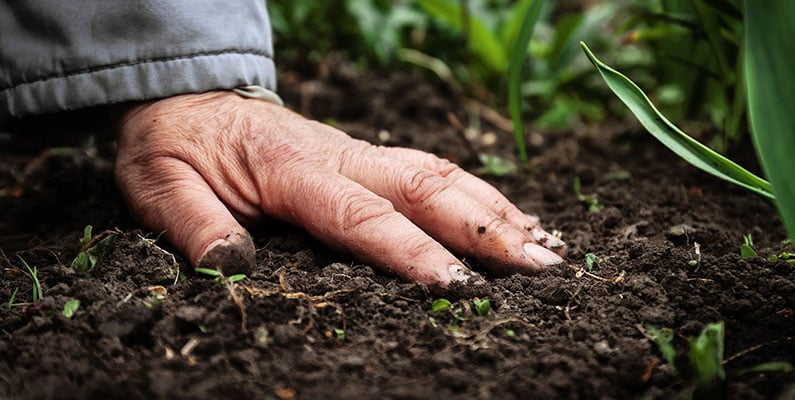A case study of a successful campaign

Whether new to the market or adding to your product portfolio, you’ll find that the market for “sustainable” solutions is crowded in every category. And while it is a popular topic for related content, for many audiences including farmers, it is also a sensitive one. In this multi-part series, we will share marketing tips and industry trends which will help brands engage farmers in a meaningful way when discussing sustainability.
Sustainability is a dynamic topic that has different meanings and evokes different emotions for different audiences. The biggest mistake companies make when they start to work with farmers or offer sustainable products to farmers is to assume that farmers are new to the concept of sustainability.
In fact, if you talk with a multi-generational farmer, you will hear that the family have been stewards of the same land for 100+ years and intend to have the land for generations to come, so of course they were sustainable before sustainable was “cool.” They fully intend to evolve their operations to further build their sustainability, as that will increase the likelihood that the farm remains in the family for another century.
This is at a bit of odds with the impression that many consumers have, which is that farms are not sustainable, or that sustainability is not a high priority for farmers. Consequently, this is an opportunity for brands to help advocate for farmers to the end-consumer and form a mutually beneficial relationship.
So how do you talk about your sustainable products and services with farmers and advocate for them in the process?
Emotion comes first. Emotions are powerful influencers in the purchase decision-making process for farmers and consumers. It’s human psychology. This blog, the first in a series of blogs related to marketing sustainability, will focus on the farmer.
To help your sustainable brand connect with farmers on an emotional level, consider:
1. Acknowledging different perceptions and methods of sustainable agriculture and committing to endorse them all.
While all farmers support sustainable production practices, the methods to sustainably produce crops can differ from farmer to farmer. As a result, brands should acknowledge and celebrate the commonalities among all forms of sustainable production practices, as they all hold value. Next, position your products and services as solutions that help advance and maintain meaningful sustainable agriculture in whichever method farmers choose to advance sustainability.
Brands that highlight their commitment beyond the farmer to the end-consumer, helping to position a variety of sustainability methods as effective in reducing negative environmental impact, will go a long way in building farmer loyalty and advocacy.
2. Personalizing communications that help problem-solve
Solutions-based content is king whether you’re looking to engage B2B or B2C customers. Like consumers, farmers have unmet needs and appreciate brands that lend a helping hand. Identify your farmer’s pressure points and point out how your sustainable ag services or products can help alleviate them.
Furthermore, brands should strive to offer personalized customer experiences and communications by mining zero- and first-party data to effectively personalize and engage one-on-one. At Rhea + Kaiser, we strive to align message, media, and measurement to determine which solutions are most compelling in the eyes of the consumer and optimize against those messages.
3. Showing farmers your products or services is a smart business decision
Don’t forget that farmers run a business, too. Position yourself as a business partner. Farmers strive to care for their land so the land can take care of them, but sometimes those practices don’t get the credit they deserve for being “economically sustainable.”
Your marketing should inform farmers how to integrate your sustainable products and services so it benefits their business, whether through government funding programs or other financial advantages. Ultimately, every farmer wants to increase productivity and sustainability. They’ll be more likely to buy your product if you can prove it benefits their bottom line. John Deere article
A recent Successful Farming article included the following quote from Deanna Kovar, vice president, production and precision ag production systems at John Deere. “[Farmers’] land is their legacy and anything they can do to nurture and protect it as well as their crops is important. For them, it must be the marriage of economics and environmental.”
Brands offering sustainable products and services can reach their market potential and effectively communicate their offerings to farmers by speaking in their business language and recognizing their views on sustainability. While there are differing perceptions of sustainable agriculture, one thing all farmers will agree on is that environmental and economic sustainability is essential to the future of all farms. And ensuring the ability to pass on farmlands to the next generation, would certainly make any farmer feel good.
© 2024 Rhea + Kaiser. All rights reserved.